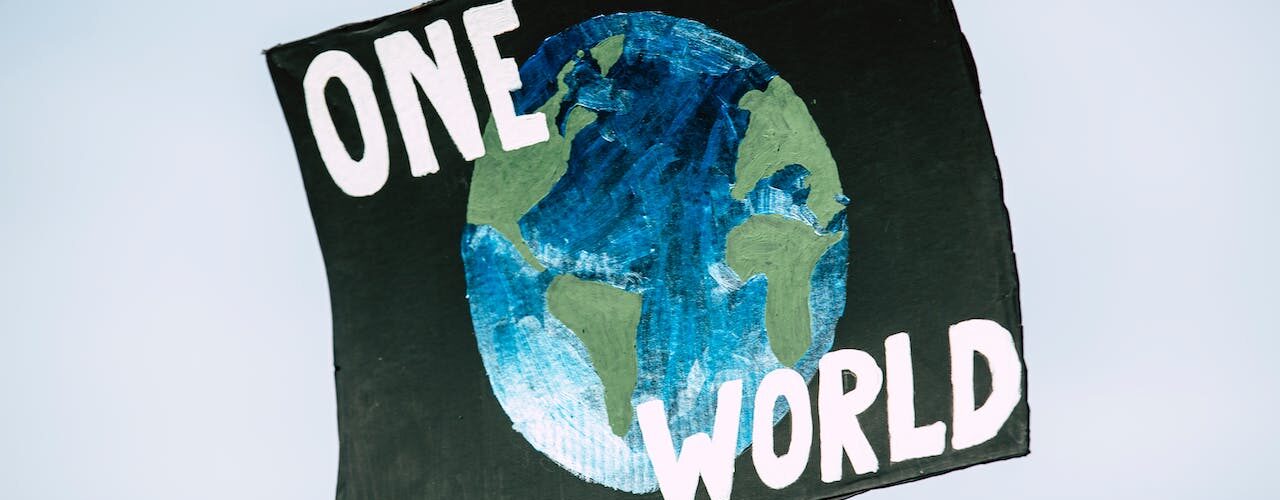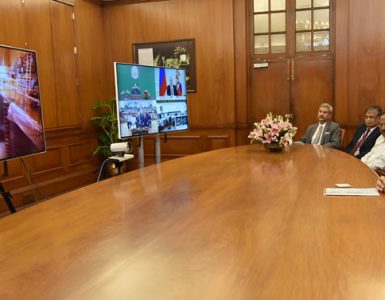The President of India, Droupadi Murmu, inaugurated a two-day National Conference on Environment in New Delhi.
The National Conference on Environment is being organised by the National Green Tribunal (NGT) from 29th March to 30th March 2025.
The conference aims to bring together key stakeholders to discuss pressing environmental challenges, share best practices, and collaborate on future action plans for sustainable environmental management.
The inaugural session was graced by Union Minister of Environment, Forest, and Climate Change, Shri Bhupender Yadav, Hon’ble Justice Vikram Nath, Judge, Supreme Court of India, Shri R. Venkataramani, Attorney General for India, in the presence of Hon’ble Justice Prakash Shrivastava, Chairperson of National Green Tribunal (NGT).
Speaking on the occasion, the President said that all days related to the environment give the message that we should keep their objectives and programs in mind every day and make them a part of our daily life as far as possible.
Environmental protection and promotion will be possible only through continuous activism based on awareness and everyone’s participation.
The President said that our children and the younger generation have to face and contribute to the environmental transition on a much wider scale. She highlighted that elders in every family worry about which school or college their children will study in, and what career they will choose. This worry is justified. But, we all also have to think about what kind of air our children will breathe, what kind of water they will get to drink, whether they will be able to hear the sweet sounds of birds or not, and whether they will be able to experience the beauty of lush green forests or not.
She said that these topics have economic, social, and scientific aspects, but the most important thing is that the challenges related to all these topics also have a moral aspect.
It is our moral responsibility to provide a legacy of a clean environment to the coming generations. For this, we will have to adopt an environmentally conscious and sensitive lifestyle so that the environment is not only protected but also enhanced, and the environment can become more vibrant.
Balancing a clean environment and modern development is both an opportunity and a challenge.
The President said that we believe that nature, like a mother, nourishes us, and we should respect and protect nature. The basis of the Indian heritage of development is nourishment, not exploitation; protection, not elimination.
Following this tradition, we want to move forward toward a developed India. She was happy to note that over the last decade, India has achieved several examples of early completion of its Nationally Determined Contributions as per international agreements.
The President said that the National Green Tribunal has played an important role in the environmental governance of our country. It has played a decisive role in the field of environmental justice or climate justice.
The historic decisions given by NGT have a wide impact on our lives, our health, and the future of our earth. She urged the institutions associated with the environmental management ecosystem and citizens to continuously strive for environmental protection and promotion.
The President said that our country and the entire world community have to follow an environmentally friendly path. Only then will humanity make real progress.
She stated that India has presented many exemplary examples to the world community through its green initiatives. She expressed confidence that with the participation of all stakeholders, India will play the role of green leadership at the global level.
She said that we all have to make India a developed nation by the year 2047, where the air, water, greenery, and prosperity attract the entire world community.
Addressing the gathering, India’s Minister of Environment, Forest, and Climate Change, Mr Bhupender Yadav, quoted the mantra ‘Sarve Bhavantu Sukhinah’, and emphasized that environmental protection is in the Indian ethos. It extends to encompass flora, fauna, mountains, rivers, and all components of the environment, he stated.
Mr Yadav stated that India reserves its right to grow responsibly based on its national circumstances. As a show of our commitment to climate action, India has fulfilled its Paris Agreement commitments on green energy nine years ahead of the 2030 target.
He further emphasized that the climate anxiety which has gripped the world cannot force India to give up its right to ensure food, water, energy, and a quality to its 140-crore people. India, under the leadership of Prime Minister Narendra Modi, is confidently striking a balance between challenges and opportunities.
Following the inaugural session, two technical sessions took place. The first, on Air Quality Monitoring and Management, was chaired by Hon’ble Justice Joymalya Bagchi, Judge, Supreme Court of India.
It was noted that true progress is not measured solely in economic terms, but by our ability to balance development with environmental sustainability and focus on the growing issue of air pollution.
Experts, including Dr. Randeep Guleria, Chairman, Institute of Internal Medicine, Medanta, Dr. Dilip Ganguly, IIT Delhi, Sh. Tanmay Kumar, Secretary, MoEF&CC, and Hon’ble Justice Pushpa Sathyanarayana, NGT, Chennai, deliberated on the causes, regulatory frameworks, and possible solutions to mitigate air pollution.
The second technical session on Water Quality Management and River Rejuvenation was presided over by Hon’ble Justice Pratibha M. Singh, Judge of Delhi High Court.
It discussed the issue of water pollution, highlighting Switzerland’s European Rhine River restoration model and the case of Namibia, while comparing the situation in India. She also provided practical solutions, including community collaboration, compliance and transparency mechanisms, and the adoption of scientific innovations and explored the pressing concerns of water pollution, over-extraction of groundwater, and conservation strategies.
Panelists Dr. M.K. Goel, National Institute of Hydrology, Roorkee, Ms. Debashree Mukherjee, Secretary, Ministry of Jal Shakti, Dr. Rajiv Kumar Mittal, DG (National Mission for Clean Ganga), and Hon’ble Justice B. Amit Sthalekar, NGT, Kolkata, discussed legislative measures, government initiatives like the Jal Jeevan Mission, and community-driven solutions for sustainable water management. The session was moderated by Prof. A.K. Gosain, Former Professor, IIT Delhi.
The first day of the conference concluded with thought-provoking discussions, setting the stage for further deliberations tomorrow. The second day of the conference will feature the third technical session on Forest Conservation and Biodiversity Protection, and the fourth technical session will include reflections on the key takeaways from the first three technical sessions.






Add comment